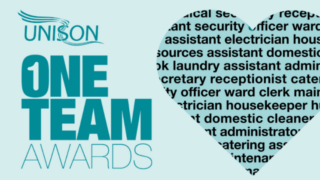By UNISON acting head of health and chair of the NHS Staff Council, Helga Pile
The right to request flexible working from day one of employment.
Every request considered fairly – whatever the role, whatever the reason.
These were the rights secured by the NHS Staff Council back in 2021 for everyone employed by the NHS.
There was huge willingness around the table to get them in place, because unions, employers and members all know what a positive difference flexible working can make. From April, even more people will benefit as the Flexible Working Act takes effect.
So far, so good.
But despite all the goodwill and evidence, we’re not making as much use of flex as we could or should be.
Unless you’ve been living under a rock, you’ll know that the health service is under unprecedented pressure.
Workloads are high. Resource is low. Members tell us they are stressed, they have no work-life balance, and their wellbeing is suffering.
The story is backed up by the data, with over 120,000 vacancies across the health service and people leaving in their thousands due to a lack of work-life balance.
So while we need to continue banging the drum for better investment in the NHS, it’s important that we think about how we can improve the situation in the here and now.
Thinking more creatively
If we can build on the examples and creative thinking that are already out there, flexible working has the potential to be a game-changer for the NHS.
Employers who have been able to break out of take-it-or-leave-it shift patterns and the ‘full time equivalent’ box for roles are tapping into a huge flexible workforce to fill vacancies. They are also creating a better working environment so people can stay and thrive in their roles.
Through this campaign, we’re hoping to make more people aware of the many ways that flex can work for you, your team – and ultimately for patients.
We want to provide staff and managers alike with the inspiration and tools to get started, as well as equip them to challenge outdated thinking, poor culture and practice around flex when it happens.
Achieving the win-win
There are few better ways for employers and managers to support staff than by actively encouraging and promoting flexible working.
Case studies from the NHS and elsewhere have shown that redesigning roles and processes to be more flexible has led to not only happier staff (with more autonomy and a better work-life balance), but also increased efficiency and safer working practices.
By embracing flex in the NHS, we are setting ourselves on the path to a happier, healthier workforce and a better service for patients.
So, let’s #TalkAboutFlex
- Let’s talk about flex is a campaign from the joint NHS unions. Find out more here.








